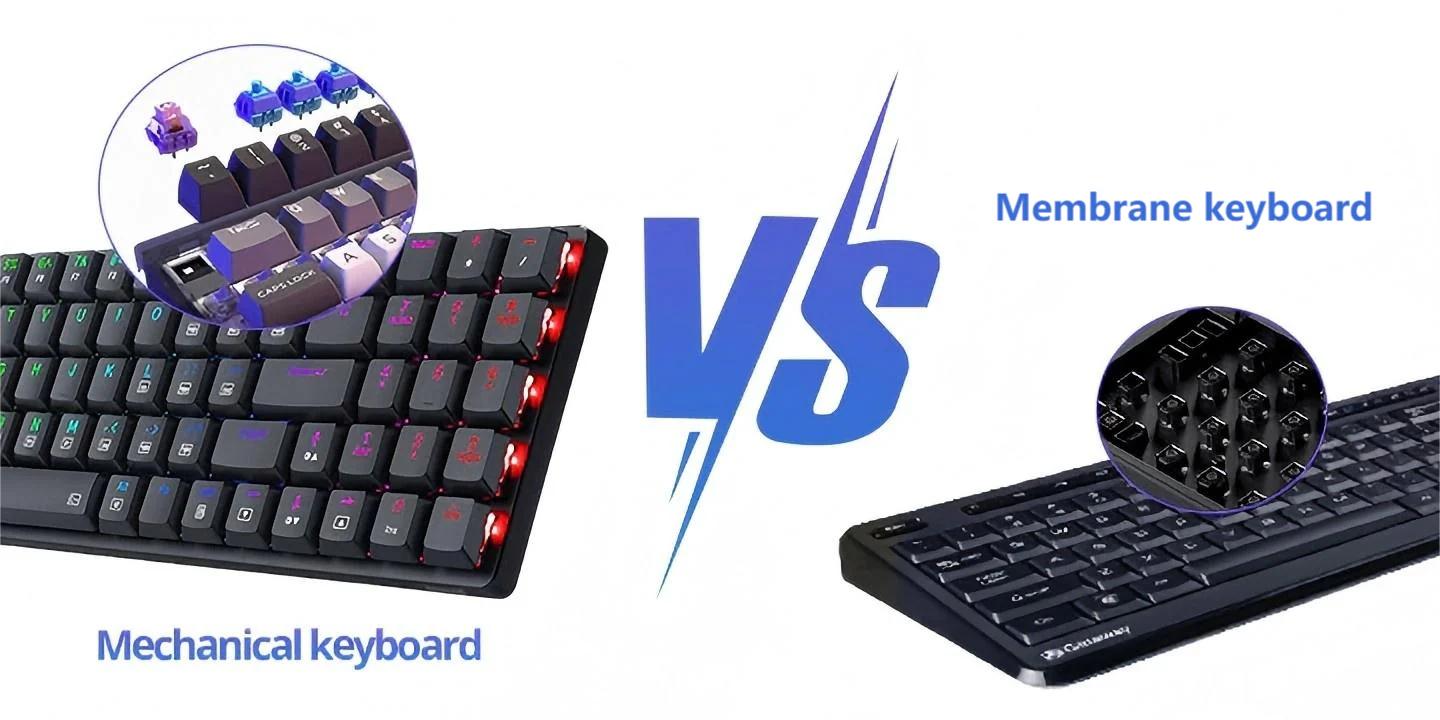Choosing the right keyboard can significantly enhance your typing experience, whether you’re a gamer, programmer, or casual user. Among the primary options available, mechanical and membrane keyboards stand out as the most popular. Understanding the differences between these two types can help you make an informed decision tailored to your needs.
What is a Mechanical Keyboard?
A mechanical keyboard uses individual mechanical switches for each key. These switches consist of a stem, spring, and housing, which work together to register keystrokes. Mechanical keyboards are renowned for their durability, responsiveness, and satisfying tactile feedback. They often feature programmable keys and customizable keycaps, making them popular among gamers and professionals who require precision and reliability.
What is a Membrane Keyboard?
In contrast, membrane keyboards are constructed with a pressure pad system. They have three layers—top membrane, a computer-generated circuit layer, and a bottom membrane—that work in unison to detect key presses. Membrane keyboards tend to be more affordable, lightweight, and quieter than mechanical options. They are commonly found in office settings and budget-friendly devices due to their simplicity and cost-effectiveness.
Key Differences Between Mechanical and Membrane Keyboards
- Feel and Feedback: Mechanical keyboards provide a tactile and audible click with each keystroke, which many users find satisfying. Membrane keyboards are generally softer and quieter, with a less defined feel, which can lead to less accuracy over prolonged typing sessions.
- Durability: Mechanical switches are rated for 50 million keystrokes or more, offering longevity and consistent performance. Membrane keyboards typically have a lifespan of around 5 million keystrokes, which might require replacing sooner.
- Cost: Mechanical keyboards can be significantly more expensive, especially those with customizable features. Membrane models are budget-friendly and suitable for casual use.
- Maintenance and Customization: Mechanical keyboards are easier to clean and customize with different switches, keycaps, and backlit options. Membrane keyboards generally lack such options and are harder to modify.
- Noise Level: Mechanical keyboards tend to be louder due to their switches, which can be distracting in shared environments. Membrane keyboards operate more quietly, making them preferable for quiet office settings.
Which One Should You Choose?
The decision between a mechanical-vs-membrane-keyboard depends on your priorities and usage scenarios. If you value durability, tactile feedback, and customization options—especially for gaming or intensive typing—a mechanical keyboard is likely the better choice. Conversely, if you need an affordable, quiet, and lightweight device for everyday office work or casual use, a membrane keyboard may suffice.
Final Thoughts
Ultimately, both types of keyboards have their advantages and drawbacks. It’s essential to consider your budget, typing preferences, and environment before making a decision. For more comprehensive insights and detailed comparisons, visit the homepage of TechnoLoss. Remember, the right keyboard can elevate your productivity and comfort significantly.

